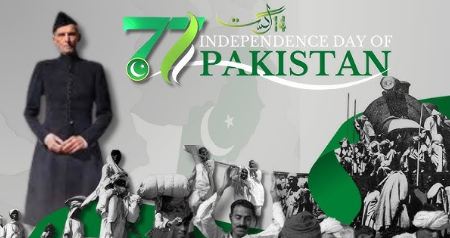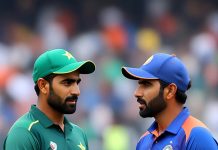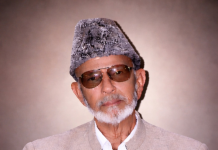Shafiqat Rasool
In the 77th year of the Celebrated independence of Pakistan, the struggle of our forefathers to get independence from a colonial power. Therefore, my focus is on a few areas that require our attention and are futuristic in concept for the progress of Pakistan. In the history of Pakistan, facing a lot of challenges and events has been troublesome, including wars with India in 1948, 1965, 1972, and Kargil 1999. East Pakistan became Bangladesh in 1972. Assignations attempt on the First Prime Minister of the Country, Liaquat Ali Khan. Benazir Bhutto former Prime Minister was killed in a terrorist attack in 2007. Military coups in Pakistan began first in 1958, second in 1977 (Operation Fair Party), and third in 1999.
Quaid-Jinnah as correctly highlighted by our visionary leader, the principles of unity, faith, and discipline are the guiding pillars of our society. He mentioned these three pillars on several occasions during his numerous speeches to the nation and stressed the fact that only through unity can we achieve success instead of being divided based on religion, sectarian, color, and creed. He mentioned that we should also have strong faith, which will guide us through difficult times and act as a beacon of light for us. Finally, by practicing self-discipline, we can achieve unimaginable success, which will prosperity both as individuals and as a nation.
Another area that requires focused attention is Education During the last few years, though, we have progressed in the field of higher education by setting up a large number of educational institutes, e.g., universities, colleges, and technical institutes, in dire need to ensure good quality of education and follow all prevailing international standards and the latest innovative techniques and teaching tools. We need to focus on our young generation, as they are the future leaders of this country. These young minds will become future scientists, engineers, scholars, doctors, economists, and many others; therefore, the key to ensuring Pakistan’s prosperity is ensuring quality education. Another related field is ‘Youth Empowerment’ which, in simple terms, means the process of providing young individuals with the tools, resources, opportunities, and support they need to achieve their full potential, participate actively in society, and bring positive change in their communities and society in general. Resultantly, Pakistan will also benefit due to the empowerment of youth. Therefore, we need to focus on youth empowerment and equipping them with the relevant skills.
Civic Responsibilities: Civic refers to the duties and obligations of citizens to actively participate in the governance and improvement of their community and society. This includes engaging in activities such as voting, staying informed about public issues, participating in community service, obeying laws, volunteering, respecting the rights of others, and contributing to the common good.
Pakistan has a unique geo-strategic location. Our country is located at the crossroads of major energy highways emanating from the oil and gas-rich Middle East region, offering unlimited sea access and connectivity to the landlocked countries of Central Asia and South Asia. The Foreign Policy Front needs on a priority basis to engage with India’s “First Neighboring Policy,” and diplomatic efforts to settle with Afghanistan and Iran are also important for Pakistan’s need to resolve basic problems and engage in a friendly relationship with her. Regional connectivity is an essential part of the country’s long-term sustainable economic growth. Therefore, there is a need to capitalize on the same. Furthermore, Allah has also blessed Pakistan with huge mineral resources, rivers, agriculture, and lands. Accordingly, we need to make the utmost efforts to tap this immense potential and bring economic prosperity to our struggling economy both in the short and long term.
Finally, it needs no further emphasis that the economy is the backbone of any country. We need to set our priorities in the right direction. We need to institute broad-based and effective economic policies to focus on CPEC and SIFC, such areas of ports, shipping companies, sea-based renewable energy, fishing, maritime transportation, tourism, climate change, and waste management.
Pakistan, with a coastal area of 1001 km, is blessed with significant blue natural resources. Its blue economy contributes an estimated US$ 1 billion, or around 0.4% of the national GDP. The bulk of this contribution is in the fisheries, coastal tourism, and maritime revenue. The more technologically advanced sectors, including energy, pharmaceuticals, and mineral industries, are currently nonexistent in the blue landscape. Pakistan has huge potential for development in the blue economy sector. However, this potential is hampered by fragmented governance, lagging technology, marine pollution, and degradation of mangrove forests. Pakistan has the potential to breed fish worth US $2 billion annually; however, seafood exports stand at $2 billion only as of today. Gwadar Port has growth potential. It is the third port developed under CPEC after the Karachi port and Port Qasim.
The government needs significant financing, domestic and external, over the medium to long term to modernize existing infrastructure, enhance the maritime industry, and create opportunities for national and international.

















